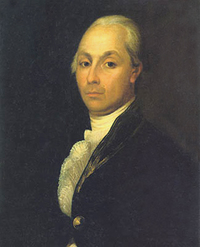
Aleksandr Radishchev
Aleksandr Nikolayevich Radishchev, was a Russian author and social critic who was arrested and exiled under Catherine the Great. He brought the tradition of radicalism in Russian literature to prominence with the publication in 1790 of his A Journey from Saint Petersburg to Moscow. His depiction of socio-economic conditions in Russia earned him exile to Siberia until 1797.
If you like author Aleksandr Radishchev here is the list of authors you may also like
Buy books on AmazonAleksandr Radishchev similar authors
-
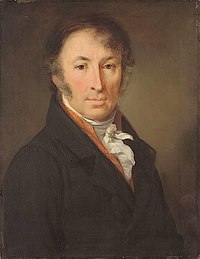
Nikolay Karamzin
Father of Nikolay Mikhaylovich Karamzin ( Николай Михайлович Карамзин ) served as an officer in the Russian army. He was sent to Moscow to study under Swiss-German teacher Johann Matthias Schaden; he later moved to Saint Petersburg, where he made the acquaintance of Dmitriev, a Russian poet of some merit, and occupied himself with translating essays by foreign writers into his native language. After residing for some time in Saint Petersburg he went to Simbirsk, where he lived in retirement until induced to revisit Moscow. There, finding himself in the midst of the society of learned men, he again took to literary work.
Buy books on Amazon
In 1789, he resolved to travel, and visited Germany, France, Switzerland and England. On his return he published his Lett -

Andrei Bely
Boris Bugaev was born in Moscow, into a prominent intellectual family. His father, Nikolai Bugaev, was a leading mathematician who is regarded as a founder of the Moscow school of mathematics. His mother was not only highly intelligent but a famous society beauty, and the focus of considerable gossip. Young Boris was a polymath whose interests included mathematics, music, philosophy, and literature. He would go on to take part in both the Symbolist movement and the Russian school of neo-Kantianism.
Buy books on Amazon
Nikolai Bugaev was well known for his influential philosophical essays, in which he decried geometry and probability and trumpeted the virtues of hard analysis. Despite—or because of—his father's mathematical tastes, Boris Bugaev was fascinated by -

Vladimir Nabokov
Russian: Владимир Набоков .
Buy books on Amazon
Vladimir Vladimirovich Nabokov, also known by the pen name Vladimir Sirin, was a Russian-American novelist. Nabokov wrote his first nine novels in Russian, then rose to international prominence as a master English prose stylist. He also made significant contributions to lepidoptery, and had a big interest in chess problems.
Nabokov's Lolita (1955) is frequently cited as his most important novel, and is at any rate his most widely known one, exhibiting the love of intricate wordplay and descriptive detail that characterized all his works.
Lolita was ranked fourth in the list of the Modern Library 100 Best Novels; Pale Fire (1962) was ranked 53rd on the same list, and his memoir, Speak, Memory (1951), was listed ei -

Margaret Mitchell
Librarian Note: There is more than one author in the Goodreads database with this name.
Buy books on Amazon
Margaret Munnerlyn Mitchell, popularly known as Margaret Mitchell, was an American author, who won the Pulitzer Prize in 1937 for her novel, Gone with the Wind, published in 1936. The novel is one of the most popular books of all time, selling more than 28 million copies. An American film adaptation, released in 1939, became the highest-grossing film in the history of Hollywood, and received a record-breaking number of Academy Awards.
-Wikipedia -

Mikhail Lermontov
Mikhail Yuryevich Lermontov (Михаил Юрьевич Лермонтов), a Russian Romantic writer, poet and painter, sometimes called "the poet of the Caucasus", was the most important Russian poet after Alexander Pushkin's death. His influence on later Russian literature is still felt in modern times, not only through his poetry, but also by his prose.
Buy books on Amazon
Lermontov died in a duel like his great predecessor poet, Aleksander Pushkin.
Even more so tragically strange (if not to say fatalistic) that both poets described in their major works fatal duel outcomes, in which the main characters (Onegin and Pechorin) were coming out victorious. -

Alexander Pushkin
Works of Russian writer Aleksandr Sergeyevich Pushkin include the verse novel Eugene Onegin (1831), the play Boris Godunov (1831), and many narrative and lyrical poems and short stories.
Buy books on Amazon
See also:
Russian: Александр Сергеевич Пушкин
French: Alexandre Pouchkine
Norwegian: Aleksander Pusjkin
Spanish:Aleksandr Pushkin
People consider this author the greatest poet and the founder of modern literature. Pushkin pioneered the use of vernacular speech in his poems, creating a style of storytelling—mixing drama, romance, and satire—associated ever with greatly influential later literature.
Pushkin published his first poem at the age of 15 years in 1814, and the literary establishment widely recognized him before the time of his graduation from the -

Nikolai Leskov
also:
Buy books on Amazon
Николай Лесков
Nikolaj S. Leskow
Nikolai Leskov
Nikolai Lesskow
Nikolaj Semënovič Leskov
Nikolaĭ Semenovich Leskov
Nikolai Ljeskow
Н. С. Лѣсков-Стебницкий
Микола Лєсков
Nikolai Semyonovich Leskov (Russian: Николай Семёнович Лесков; 16 February 1831 — 5 March 1895) was a Russian novelist, short story writer, playwright, and journalist who also wrote under the pseudonym M. Stebnitsky. Praised for his unique writing style and innovative experiments in form, and held in high esteem by Leo Tolstoy, Anton Chekhov and Maxim Gorky among others, Leskov is credited with creating a comprehensive picture of contemporary Russian society using mostly short literary forms. His major works include Lady Macbeth of Mtsensk (1865) (which was later made into an o -

Molière
Sophisticated comedies of French playwright Molière, pen name of Jean Baptiste Poquelin, include Tartuffe (1664), The Misanthrope (1666), and The Bourgeois Gentleman (1670).
Buy books on Amazon
French literary figures, including Molière and Jean de la Fontaine, gathered at Auteuil, a favorite place.
People know and consider Molière, stage of Jean-Baptiste Poquelin, also an actor of the greatest masters in western literature. People best know l'Ecole des femmes (The School for Wives), l'Avare ou l'École du mensonge (The Miser), and le Malade imaginaire (The Imaginary Invalid) among dramas of Molière.
From a prosperous family, Molière studied at the Jesuit Clermont college (now lycée Louis-le-Grand) and well suited to begin a life in the -
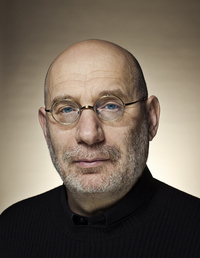
Boris Akunin
Real name - Grigory Shalvovich Chkhartishvili (Russian: Борис Акунин; Georgian: გრიგორი შალვას ძე ჩხარტიშვილი; Аlso see Grigory Chkhartishvili, Григорий Чхартишвили), born in Tbilisi, Georgia, in 1956. Since 1958 he lives in Moscow. Writer and translator from Japanese. Author of crime stories set in tsarist Russia. In 1998 he made his debut with novel Azazel (to English readers known as The Winter Queen), where he created Erast Pietrovich Fandorin.
Buy books on Amazon
B. Akunin refers to Mikhail Alexandrovich Bakunin and Akuna, home name of Anna Akhmatova, Russian poet.
In September of 2000, Akunin was named Russian Writer of the Year and won the "Antibooker" prize in 2000 for his Erast Fandorin novel Coronation, or the last of the Romanovs.
Akunin also create -
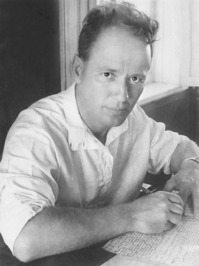
Mikhail Sholokhov
Mikhail Aleksandrovich Sholokhov was awarded the 1965 Nobel Prize in Literature "for the artistic power and integrity with which, in his epic of the Don, he has given expression to a historic phase in the life of the Russian people."
Buy books on Amazon -

Eugenia Ginzburg
Eugenia Ginzburg (Russian: Евгения Гинзбург) was a Russian historian and writer. Soon after Eugenia Ginzburg was born into the family of a Jewish pharmacist in Moscow, her family moved to Kazan. In 1920 she entered the social sciences department of Kazan State University, later switching to pedagogy.
Buy books on Amazon
She worked as a rabfak (worker's faculty) teacher, then as an assistant at the University. Shortly thereafter, she married Pavel Aksyonov, the mayor of Kazan and a member of the Central Executive Committee of the USSR. After becoming a Communist Party member, Ginzburg continued her successful career as educator, journalist and administrator. Her oldest son, Alexei Fedorov, from her first marriage to Doctor Fedorov, was born in 1926 and died in t -
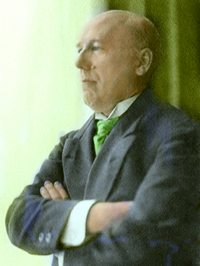
Fyodor Sologub
Fyodor Sologub (Russian: Фёдор Сологуб, born Fyodor Kuzmich Teternikov, Russian: Фёдор Кузьмич Тетерников; 1 March 1863 – 5 December 1927) was a Russian Symbolist poet, novelist, playwright and essayist. He was the first writer to introduce the morbid, pessimistic elements characteristic of European fin de siècle literature and philosophy into Russian prose.
Buy books on Amazon -

Leo Tolstoy
Lev Nikolayevich Tolstoy (Russian: Лев Николаевич Толстой; most appropriately used Liev Tolstoy; commonly Leo Tolstoy in Anglophone countries) was a Russian writer who primarily wrote novels and short stories. Later in life, he also wrote plays and essays. His two most famous works, the novels War and Peace and Anna Karenina, are acknowledged as two of the greatest novels of all time and a pinnacle of realist fiction. Many consider Tolstoy to have been one of the world's greatest novelists. Tolstoy is equally known for his complicated and paradoxical persona and for his extreme moralistic and ascetic views, which he adopted after a moral crisis and spiritual awakening in the 1870s, after which he also became noted as a moral thinker and soc
Buy books on Amazon -

Nikolai Gogol
People consider that Russian writer Nikolai Vasilievich Gogol (Николай Васильевич Гоголь) founded realism in Russian literature. His works include The Overcoat (1842) and Dead Souls (1842).
Buy books on Amazon
Ukrainian birth, heritage, and upbringing of Gogol influenced many of his written works among the most beloved in the tradition of Russian-language literature. Most critics see Gogol as the first Russian realist. His biting satire, comic realism, and descriptions of Russian provincials and petty bureaucrats influenced later Russian masters Leo Tolstoy, Ivan Turgenev, and especially Fyodor Dostoyevsky. Gogol wittily said many later Russian maxims.
Gogol first used the techniques of surrealism and the grotesque in his works The Nose , Viy , -

Johann Wolfgang von Goethe
A master of poetry, drama, and the novel, German writer and scientist Johann Wolfgang von Goethe spent 50 years on his two-part dramatic poem Faust , published in 1808 and 1832, also conducted scientific research in various fields, notably botany, and held several governmental positions.
Buy books on Amazon
George Eliot called him "Germany's greatest man of letters... and the last true polymath to walk the earth." Works span the fields of literature, theology, and humanism.
People laud this magnum opus as one of the peaks of world literature. Other well-known literary works include his numerous poems, the Bildungsroman Wilhelm Meister's Apprenticeship and the epistolary novel The Sorrows of Young Werther .
With this key figure of German literature, th -

Nikolay Karamzin
Father of Nikolay Mikhaylovich Karamzin ( Николай Михайлович Карамзин ) served as an officer in the Russian army. He was sent to Moscow to study under Swiss-German teacher Johann Matthias Schaden; he later moved to Saint Petersburg, where he made the acquaintance of Dmitriev, a Russian poet of some merit, and occupied himself with translating essays by foreign writers into his native language. After residing for some time in Saint Petersburg he went to Simbirsk, where he lived in retirement until induced to revisit Moscow. There, finding himself in the midst of the society of learned men, he again took to literary work.
Buy books on Amazon
In 1789, he resolved to travel, and visited Germany, France, Switzerland and England. On his return he published his Lett -

Maxim Gorky
Russian writer Aleksei Maksimovich Peshkov (Russian: Алексей Максимович Пешков) supported the Bolshevik revolution of 1917 and helped to develop socialist realism as the officially accepted literary aesthetic; his works include The Life of Klim Samgin (1927-1936), an unfinished cycle of novels.
Buy books on Amazon
This Soviet author founded the socialist realism literary method and a political activist. People also nominated him five times for the Nobel Prize in literature. From 1906 to 1913 and from 1921 to 1929, he lived abroad, mostly in Capri, Italy; after his return to the Soviet Union, he accepted the cultural policies of the time. -

Fyodor Dostoevsky
Фёдор Михайлович Достоевский (Russian)
Buy books on Amazon
Works, such as the novels Crime and Punishment (1866), The Idiot (1869), and The Brothers Karamazov (1880), of Russian writer Feodor Mikhailovich Dostoyevsky or Dostoevski combine religious mysticism with profound psychological insight.
Very influential writings of Mikhail Mikhailovich Bakhtin included Problems of Dostoyevsky's Works (1929),
Fyodor Mikhailovich Dostoevsky composed short stories, essays, and journals. His literature explores humans in the troubled political, social, and spiritual atmospheres of 19th-century and engages with a variety of philosophies and themes. People most acclaimed his Demons(1872) .
Many literary critics rate him among the greatest authors of worl -

Victor Pelevin
Victor Olegovich Pelevin is a Russian fiction writer. His books usually carry the outward conventions of the science fiction genre, but are used to construct involved, multi-layered postmodernist texts, fusing together elements of pop culture and esoteric philosophies. Some critics relate his prose to the New Sincerity and New Realism literary movements.
Buy books on Amazon
RU: Виктор Пелевин -

Ivan Goncharov
Russian novelist Ivan Aleksandrovich Goncharov (/ˈɡɒntʃəˌrɔːf, -ˌrɒf/; Russian: Ива́н Алекса́ндрович Гончаро́в), best known for his novels A Common Story (1847), Oblomov (1859), and The Precipice (1869). He also served in many official capacities, including the position of censor.
Buy books on Amazon
Goncharov was born into the family of a wealthy merchant, elevated as a reward for military service of his grandfather to gentry status. A boarding school, then the Moscow college of commerce, and finally Moscow State University educated him. After graduating, he served for a short time in the office of the governor of Simbirsk before moving to Saint Petersburg, where he worked as government translator and private tutor, while publishing poetry and fict -

Andrei Bely
Boris Bugaev was born in Moscow, into a prominent intellectual family. His father, Nikolai Bugaev, was a leading mathematician who is regarded as a founder of the Moscow school of mathematics. His mother was not only highly intelligent but a famous society beauty, and the focus of considerable gossip. Young Boris was a polymath whose interests included mathematics, music, philosophy, and literature. He would go on to take part in both the Symbolist movement and the Russian school of neo-Kantianism.
Buy books on Amazon
Nikolai Bugaev was well known for his influential philosophical essays, in which he decried geometry and probability and trumpeted the virtues of hard analysis. Despite—or because of—his father's mathematical tastes, Boris Bugaev was fascinated by -
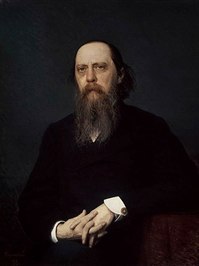
Mikhail Saltykov-Shchedrin
Mikhail Saltykov was born on 27 January 1826 in the village of Spas-Ugol (modern-day Taldomsky District of the Moscow Oblast of Russia) as one of the eight children (five brothers and three sisters) in the large Russian noble family of Yevgraf Vasilievich Saltykov (1776—1851) and Olga Mikhaylovna Saltykova (née Zabelina) (1801—1874). His father belonged to an ancient Saltykov noble house that originated as one of the branches of the Morozov boyar family. According to the Velvet Book, it was founded by Mikhail Ignatievich Morozov nicknamed Saltyk (from the Old Church Slavonic word "saltyk" meaning "one's own way/taste"), the son of Ignaty Mikhailovich Morozov and a great-grandson of the founder of the dynasty Ivan Semyonovich Moroz who lived
Buy books on Amazon -
